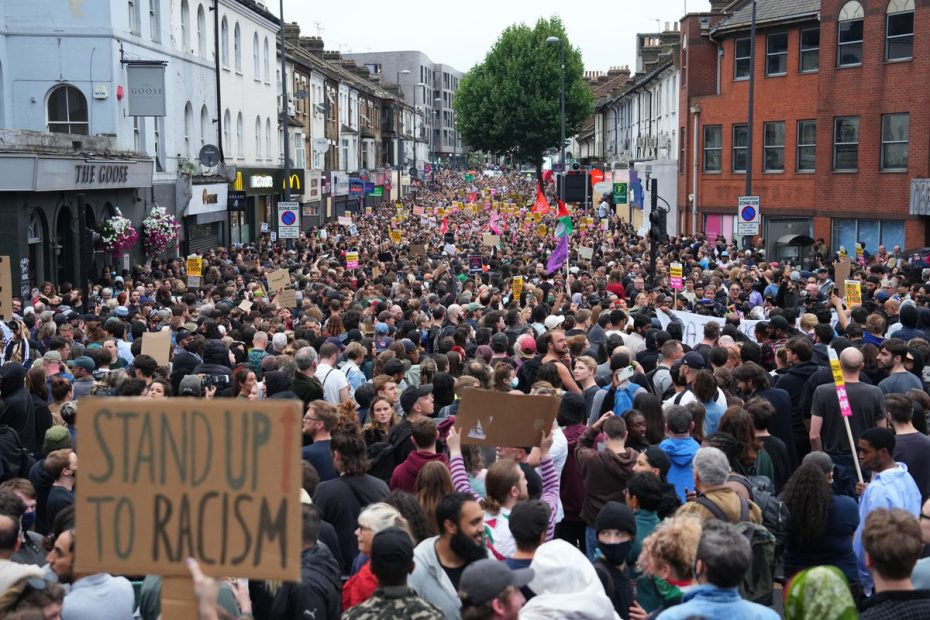On Wednesday afternoon, police and locals braced for a fresh wave of far-right riots, following the chaos seen in cities across the UK last week.
Shops and homes were boarded up, migrant centres were barricaded and 6,000 police officers were mobilised across the country.
But as night fell, the far-right rioters—for the most part—did not show up, despite widely publicized plans for groups to mobilize more than 100 targets across the country, including nearly 40 migrant centers.
Instead, thousands of counter-protesters turned out at many of the targeted locations. An estimated 5,000 anti-racist protesters were seen on the streets of Walthamstow, east London, holding signs reading “No Room for Racism” and “Refugees Welcome”.
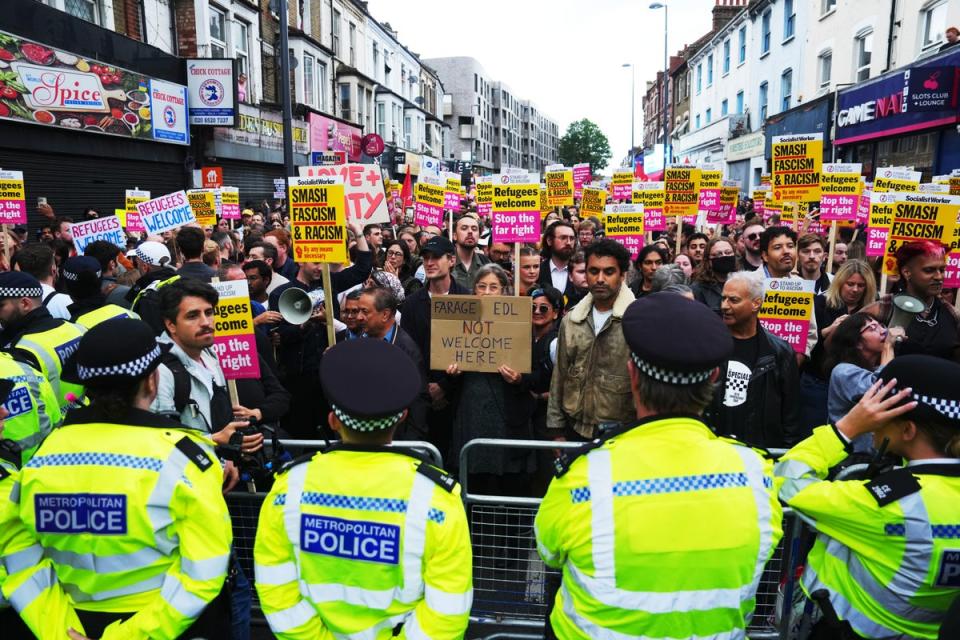

Similar scenes played out in places like Brighton, Bristol, Newcastle and Liverpool. These were very different scenes to what the country saw in Southport last week or in England and Northern Ireland last weekend.
Hundreds of people have been arrested and dozens of police officers injured in the aftermath of last week’s unrest. Police have said intelligence suggests more rioting is expected, but many see Wednesday’s events as a sign that the worst may now be over.
So why didn’t far-right rioters mobilize on Wednesday like they did last week? Here’s everything you need to know:
Number of arrests
More than 400 people have been arrested since last week’s unrest, many during the events and some in the days after. Police raided homes and detained them after investigations identified them as suspects.
Met Police Commissioner Mark Rowley said: “We've done a number of dawn raids this morning. The people who were most violent during the Whitehall protests and the violence last week… about 70 per cent of them have a criminal history.”
“We have criminal damage, violence, weapons offences, football bans. These are criminal thugs. Any suggestion that they are patriots, or that they have a cause that they are protesting for, is nonsense, and frankly most of them will be charged with violent disorder and most of them will go to jail for a couple of years.”
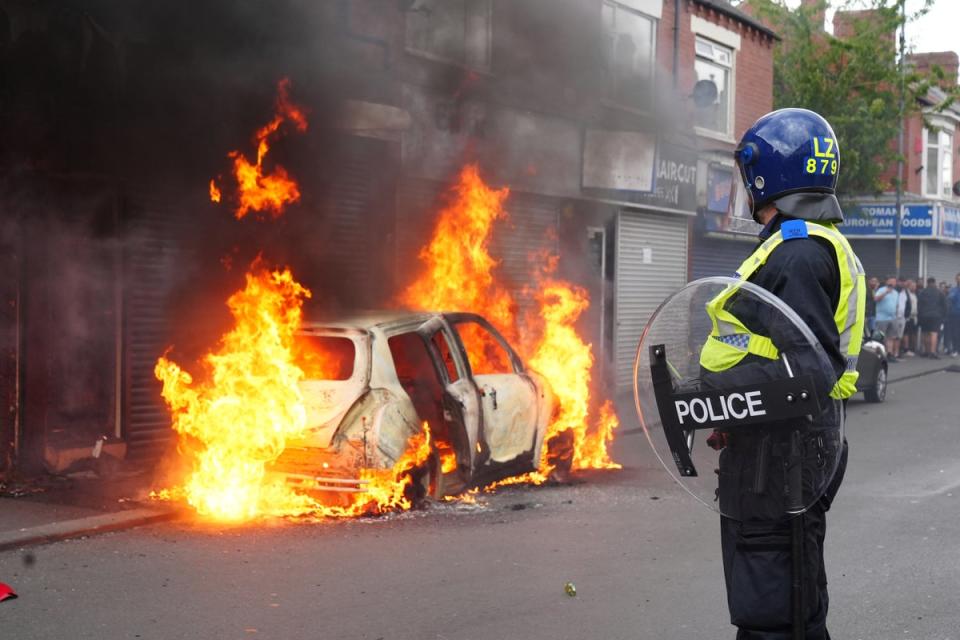

Also working on the side of the authorities are social media images and footage. Features that have been developed in recent years, such as live streaming and location tagging, will prove useful for police to gather intelligence. A police source told The Guardian: “Every police force will have analysts who monitor social media, [such as] TikTok, for evidence gathering purposes.”
Images of arrests and home raids are likely to have a strong deterrent effect on people considering rioting and not wanting to end up in the same situation.
Severe punishments
Following the chaos in Southport and beyond, the Crown Prosecution Service (CPS) has worked to swiftly convict those involved in the riots. Several have already been convicted, their cases placed at the top of the queue despite the backlog of cases in the UK that can sometimes last years.
Three men were the first to be jailed for their involvement in the Southport riots on Wednesday. The longest sentence went to Derek Drummond, 58, from Southport, who was jailed for three years after pleading guilty to violent disorder and assaulting an emergency worker.
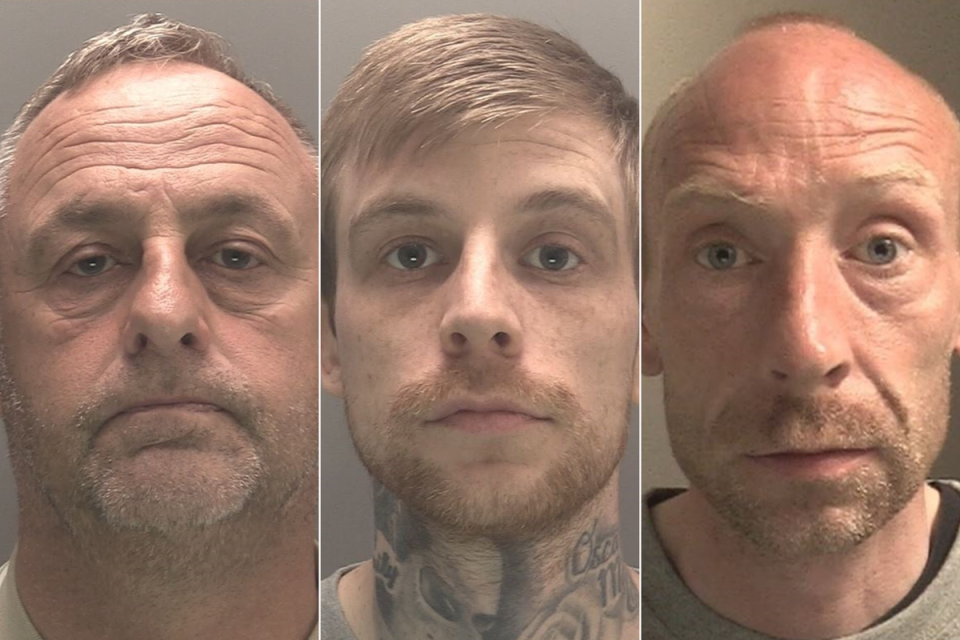

Director of Public Prosecutions Stephen Parkinson said: “There are sentencing guidelines which indicate that many people who have fallen into this disorder will be given an immediate prison sentence. There should be no doubt about that. They will go to prison.
“We are prepared to look into terrorist crimes. I know of at least one case where that happens.”
It is likely that Mr Parkinson’s strong language, echoed by Prime Minister Keir Starmer and Home Secretary Yvette Cooper, has deterred many potential rioters. And now that we see what punishment people can expect for taking part in the violence, that deterrent has become even stronger.
Counter-protesters
Unlike last week’s far-right riots, the intended plans for Wednesday were shared widely on social media. It is possible that organizers felt emboldened to share details more openly after the relatively high turnout for the weekend’s riots.
Shops, homes and the targeted migrant centers braced for violence by boarding up their windows and even barricading their doors. Police responded by deploying more than 6,000 officers to deal with more potential disorder.
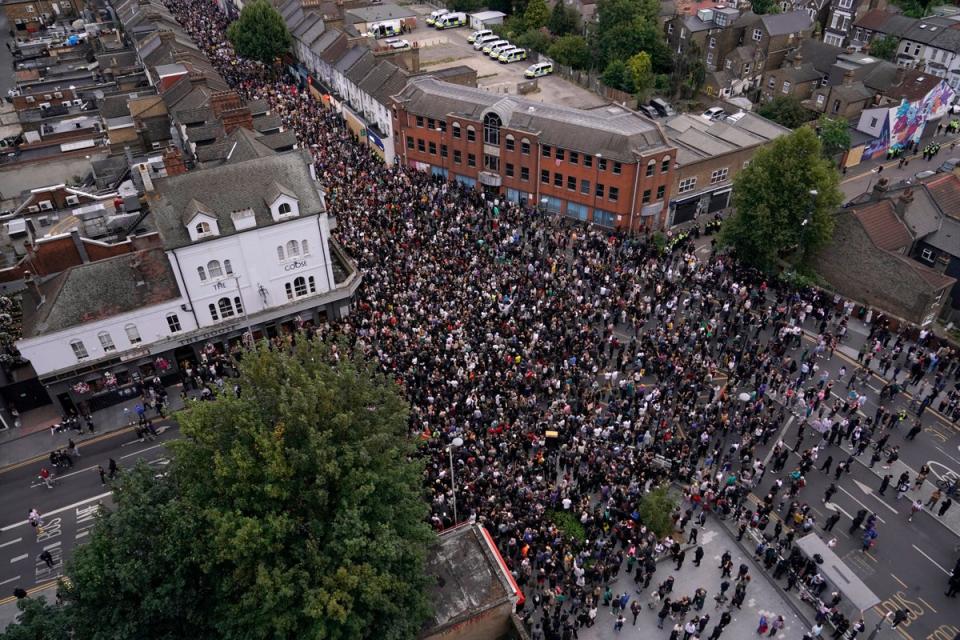

But perhaps most crucially, was the massive presence of anti-racist counter-protesters in locations across the UK. These huge crowds dwarfed the far-right presence in most places, which was already smaller than in recent days.
The movements were organised with the help of the campaign group Stand Up to Racism. The anti-racist organisation has organised dozens of further protests for a 'National Day of Protest' on Saturday, with the aim of 'stopping the far right'. In London, the crowd will gather outside the headquarters of Reform UK.
Commenting on the scenes in London, Mr Rowley said: “It was a huge police operation. I'm very pleased with how it went.”
“We put thousands of officers out on the streets and I think the show of force from the police, and frankly the show of unity from the communities together, overcame the challenges that we saw and it was a very peaceful last night.”
